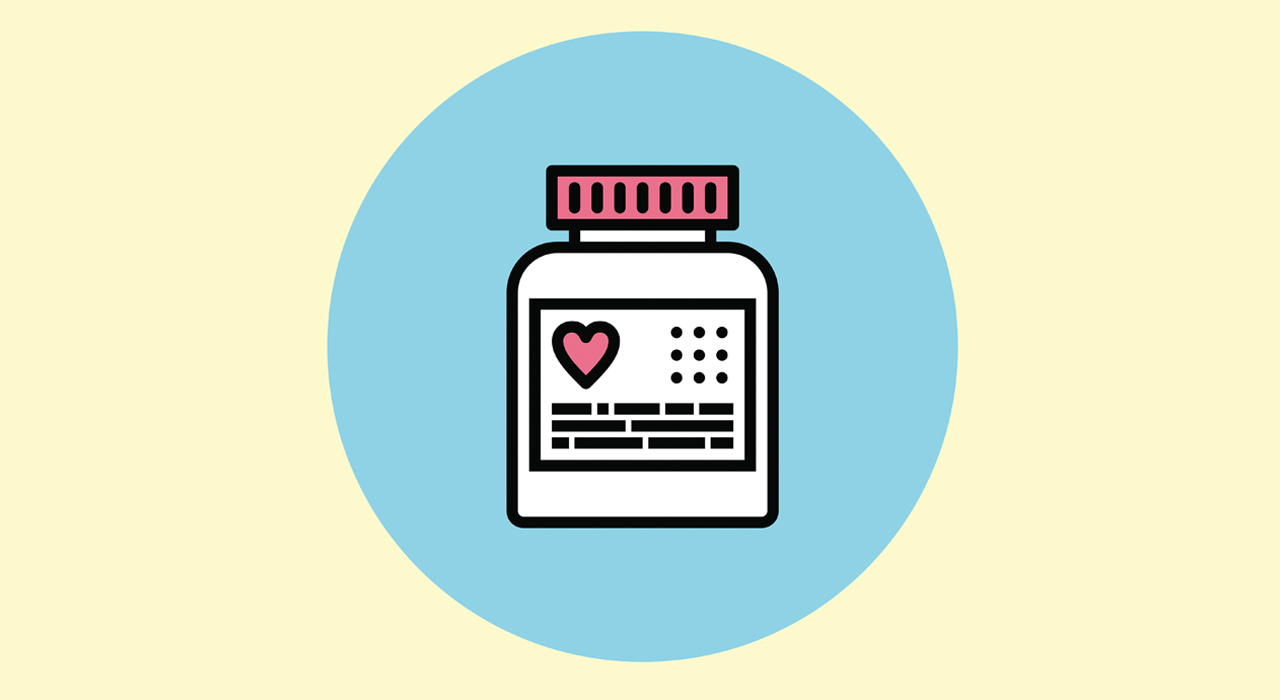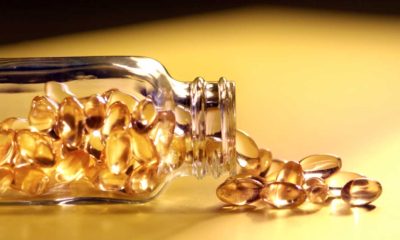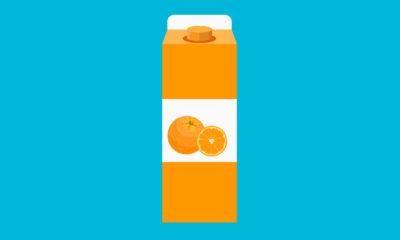Health
Is CoQ10 Really A Super Supplement?
CoQ10 improves heart health and reduces your risk of cancer while helping you lose body fat and build more muscle. Here’s the dish on this super supplement.
Coenzyme Q10 (CoQ10) is concentrated in the mitochondria of cells. Mitochondria are the power plants of cells, producing the majority of adenosine triphosphate (ATP) from carbs and fats. ATP is the energy that all cells, such as muscle cells, rely on to function. It is also found in the membrane of cells. This is important as it can enhance the integrity of cells, such as muscle cells. Although not classified as a vitamin, CoQ10 has properties similar to vitamins. It serves as a coenzyme that assists in numerous reactions in the body.
Unlike most vitamins, CoQ10 is produced naturally in the body from the amino acid tyrosine, or from phenylalanine, in addition to several vitamins and minerals. Therefore, it doesn’t have a recommended intake level. That doesn’t mean you shouldn’t supplement with it. Quite the opposite. After the age of 20, your levels of CoQ10 begin to drop more, so your body’s utilisation of it is increased. If you train, you’re using more of it because intense exercise, or an increase in metabolic rate – which occurs with intense training – increases your body’s use of CoQ10.
Fighting disease
Hundreds of studies show CoQ10 is effective for the treatment of many diseases, such as: cardiovascular disease, chronic fatigue syndrome, muscular dystrophy and neurodegenerative disorders. Many of the clinical studies confirm supplementation with it improves heart function and reduces blood pressure. What’s more, low blood levels of CoQ10 occur in patients with myeloma, lymphoma, and cancers of the breast, lung, prostate, pancreas, colon, kidney, head and neck. Studies suggest that coenzyme Q10 may help the immune system work better thanks to its antioxidant properties, which may lower the likelihood of cancer developing.
Since oxidative stress results in damage to DNA and protein, it has been implicated in many neurodegenerative disorders, including Alzheimer’s disease, Parkinson’s disease, and Huntington’s disease. Since CoQ10 reduces oxidative stress, it may help to protect against these disorders, as well as any neuronal damage produced by ischemia (lack of blood flow), atherosclerosis and toxic injury.
Not only does it work itself to quench free radicals, which can damage all tissues in the body, it enhances the antioxidant potential of other antioxidants in the body, such as vitamins C and E. These antioxidant properties provide CoQ10 its wide range of beneficial effects.
For example, one way it may reduce the risk of cardiovascular disease is by inhibiting the oxidation of LDL (bad) cholesterol. Oxidation of LDL in arterial walls leads to the development of atherosclerosis. Another way it may prevent cardiovascular disease, as well as diabetes, is by enhancing vitamin E’s ability to reduce levels of the inflammatory protein, C-reactive protein (CRP). CRP is linked to the risk of heart disease and diabetes. A 2004 study found that adding CoQ10 supplements to vitamin E supplements reduced CRP levels by 20% more than vitamin E alone. It should be obvious that CoQ10 can drastically improve your energy levels, given that it’s critical for the production of ATP, and your levels are likely low due to your age and your training.
CoQ10 benefits training
Several studies confirm that CoQ10 supplementation enhances exercise performance. A 2008 study by Japanese scientists investigated the effects of CoQ10 supplementation on fatigue during exercise and found that subjects taking Co Q10 experienced less fatigue and recovered faster. Although it was an aerobic-exercise study, it has implications for bodybuilders. The reduced fatigue afforded by the CoQ10 supplement suggests you could get more reps on higher rep sets, especially late in your workout, by adding CoQ10 to your supplement regimen.
Also, the fact that the subjects taking CoQ10 were able to recover faster between bouts of exercise suggests it may be able to help you better recover between sets. Although weightlifting is anaerobic exercise – you don’t rely much on oxygen or the mitochondria to produce the energy you need during a set – it’s between sets when you use oxygen to produce ATP via the mitochondria for your next set.
Because CoQ10 helps the mitochondria create ATP faster after you finish each set, it can help you to be stronger on the next set. Finnish scientists found there were significant improvements when cross-country skiers supplemented with CoQ10. Their maximal oxygen consumption, endurance and recovery between exercise bouts improved significantly. Several other studies found similar results.
CoQ10 can also protect from muscle damage. A recent study from the University of Granada found that in athletes competing in a 30-plus-mile run supplementing with CoQ10 had only a 38% increase in markers for DNA damage compared to 100% for runners taking a placebo. They reported that the CoQ10 prevented the over-expression of pro-in ammatory compounds thereby reducing oxidative damage to the muscle cells.
Another way that CoQ10 may help to reduce exercise-induced muscle damage is by stabilising the muscle membrane. CoQ10 is found in the membranes of muscle cells, where it helps to add stability to the muscle cell. This can help muscle bre be more resilient against mechanical damage, such as intense exercise.
This talk about the prevention of muscle damage may be confusing. After all, we know that inducing muscle damage is important. So why would you want to prevent it? Well, there’s still a lot that we don’t know about muscle damage, recovery, and muscle growth. So don’t ditch CoQ10 thinking that it’s going to prevent you from being able to damage your muscles in the gym and grow. In fact, a study from Australia showed subjects taking 300mg of CoQ10 for four weeks experienced an increase in the amount of fast-twitch muscle res without even training.
Since the fast-twitch muscle bres are the muscle bres that are the strongest and the biggest, this suggests that supplementing with CoQ10 may help you increase muscle strength and muscle size by increasing the number of fast-twitch muscle bres you carry. A more recent study on Olympic athletes found that those supplementing with CoQ10 were able to increase their muscle power greater than those taking a placebo.
CoQ10 dosing
The majority of the studies in humans showing signifcant effects with CoQ10 used doses of around 300mg per day of CoQ10. Although CoQ10 is somewhat rich in beef, sardines, mackerel, and peanuts, there’s only about 30mg of CoQ10 in one pound of sardines, 2lb beef, or 21⁄2lb peanuts. You definitely need to supplement with it, as it would be difficult to get enough CoQ10 in your diet.
What kind to take
I suggest taking 300mg of CoQ10 daily with a meal. Your best bet is to use ubiquinol versus the more common form ubiquinone. Ubiquinol is the reduced form of CoQ10 and the form that your body mainly utilises. Taking regular ubiqinone CoQ10 means that your body must reduce it to ubiquinol. The ability of the body to do this can decrease with age. That may mean that less ubiquinone is being converted in the body to ubiquinol. Ubiquinol has also been shown to be far better absorbed than ubiquinone.
Regardless of the form, CoQ10 is fat-soluble, so it’s better absorbed when taken with food. You may also want to make sure those meals include a cup of grapefruit juice. Japanese scientists discovered that uptake of CoQ10 is enhanced when taken with grapefruit juice, which acts on a certain protein in the digestive tract to allow for a higher absorption of CoQ10. Another way to enhance CoQ10 uptake is to take it with about 5mg of BioPerine. This patented pipeline extract from black pepper has been shown to increase the absorption of CoQ10 by about 30% than taking CoQ10 alone.






















